Abstract
In Nigel Bevan’s unexpected death, the UX community lost a friend, colleague, and tireless advocate for the formalization of global UX standards. This personal and professional remembrance provides an overview of Nigel’s career, his uniquely significant contributions to ISO and other UX standards, his contributions as a UPA / UXPA advisory board member, and how his colleagues, friends, and family remember him.
Keywords
Nigel Bevan, career, remembrance, professional contributions,
untimely death, ISO standards, Common Industry Format, CIF, UX standards,
standards, UXPA advisory board, world usability day
Introduction
On the 26th of March 2018 Nigel Bevan died suddenly and unexpectedly in a hiking mishap while visiting Sarawak, Malaysia. In this tragedy the UX community lost a friend, colleague, and tireless advocate for formalizing global UX standards.
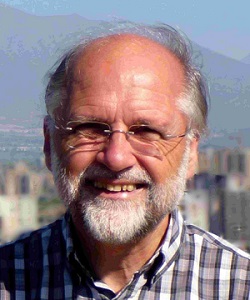
Nigel Bevan
In its immediate aftermath, Nigel’s accident took his personal and professional community by surprise, me included. UX-related social media channels enabled friends and colleagues to update each other at Internet speed. As word of his untimely death moved through the Internet and international media channels, there was a sincere outpouring of shock and sorrow. In the days that followed, international news outlets wrote about Nigel’s death with emergent details that at times inadvertently overdramatized the accident itself. In response, Nigel’s family clarified that the original stories of Nigel’s accident and subsequent death gave a more dramatic impression of events than what had actually occurred. In truth, Nigel was hiking with three companions and a native guide when, in his family’s words:
He banged his head and slid a little down from the path, before being brought back up by the group he was hiking with. Above all, it made a big difference to us to know that he was never alone (he was with his group until the rescue team arrived), and also that it was not a long, drawn-out death as we had feared, as it seems that the change from his condition seeming quite stable to his death happened quite suddenly.
I had the privilege of working alongside Nigel through the UXPA International advisory board and to engage in some good-hearted shenanigans from time to time when our paths crossed at UX-related events. To honor his memory and his singular contributions to the field, Nigel was posthumously awarded the UXPA International Lifetime Achievement Award. He had been shortlisted for the award prior to his death, but as you can imagine, prior to the accident no one imagined that he would leave us so soon. I volunteered to put together a memorial presentation in conjunction with the Lifetime Achievement Award ceremony at the UXPA International Annual Conference in Puerto Rico in June of 2018. To prepare for this I reached out to Nigel’s family, friends, and members of the UX community. I received countless stories, photographs, shared memories, and well wishes—the majority of which are available via links at the end of this article. During this process, I learned more about Nigel’s professional and personal life, and reaffirmed my longstanding admiration for his intellect, tireless work ethic, uniquely friendly and quirky nature, and the remarkable intellectual legacy he leaves behind.
Life and Career
Professionally, Nigel was the very definition of a man of letters. He held degrees in physics and psychology, and a PhD in man-machine interaction. He was a Professional Usability Consultant through his company Professional Usability Services, a National Expert for UXQB, Research Manager at Serco Usability Services, Head of Usability at the National Physical Laboratory, and a Research Associate at the University of York.
Nigel participated in several international standards groups and contributed to the development of ISO 13407 and ISO 9126. He was responsible for developing the new Common Industry Format standard for usability requirements. Nigel has given tutorials on usability, web evaluation, and user centered design around the globe. He was a member of the U.S. National Academies Committee on Human-System Design Support. Nigel was technical co-coordinator of the EU MUSiC (Measurement of Usability in Context) project that produced methods for usability measurement. These methods have since been widely applied commercially. He was manager of the INUSE and RESPECT projects that set up a network of Usability Support Centers around Europe, the TRUMP project that incorporated user centered design into the development processes of two large organizations, the PRUE project that trialed the use of the Common Industry Format for usability test reports, and the UsabilityNet project that has established a website of usability resources.
Nigel has an international reputation for his work on usability and user centered design. He has numerous publications and has given tutorials on usability, web evaluation, and user centered design at international conferences including the Usability Professionals’ Association, CHI, Interact, HCI International, and software quality and software engineering conferences.
From the mid-1980s Nigel was involved with the development of international standards as a national expert for the UK in both systems and software engineering, and ergonomics, becoming the founding convenor of ISO TC159/SC4/WG11 Ease of operation of everyday products in 2010. He was a member of the TC13 (on human-machine interaction) committee of the International Federation of Information Processing societies (IFIP) and was involved in the creation of the first of the ongoing INTERACT conferences in 1984. In the 1990s the Usability Forum, with which he was involved, made a significant difference in industrial engagement for the practice of usability.
Nigel was a Board member of the User Experience Professionals Association (then called UPA), where he and I met, and a council member of the UK UPA.
The comments I received from Nigel’s professional colleagues covered decades of interactions and highlighted countless contributions to the field and to individuals’ careers. Interestingly, these comments invariably mentioned four things: a deep affection for Nigel, admiration for his adventuresome nature, his professional impact, and a sincere appreciation for Nigel as an intellectual sparring partner. In the words of his friend and colleague Jurek Kirakowski:
I know I speak for all when I say that Nigel’s death comes as a sudden shock. He was one of those people that you thought would live forever, tracing long voyages through the skies in first class compartments to critical scientific meetings, visiting friends, or going on hiking expeditions – often, all three. A constant wonder and a delight. . . Nigel was not only a great intellectual opponent, he was also a very close friend.
UX consultant Sarah Bloomer adds, “Like others, I had many conversations where we did not always agree, and those conversations were part of my education. He had a unique and major impact on my professional life. I’ll never forget him.”
ISO Standards: Decades of Advocacy
Nigel was an important contributor to national and international HCI and Ergonomics standards through his involvement with the International Standards Organization (ISO) from early in his career until his untimely death. He specialized in the standardization process for the developing fields of Human-Computer Interaction (HCI) and Usability and contributed to the 1999 ISO 13407 standard, “Human-centered design processes for interactive systems.” (This has now been superseded by ISO 9241-210:2010, “Ergonomics of human-system interaction — Part 210: Human-centered design for interactive systems” to which he also contributed.)
Speaking of Nigel’s ISO involvement, Rolf Molich, UXPA Lifetime Achievement Award recipient said, “I have been in regular contact with him at ISO-meetings. He was a highly esteemed advisor to our European certification effort. I have always known Nigel as a kind, helpful, enthusiastic and very knowledgeable person in our field.” The ISO itself had this to say about Nigel’s contributions:
In addition to assigned responsibilities Nigel Bevan was diligent, thorough and perceptive in commenting on standards on behalf of both the UK and UXPA. His tireless work in this area without doubt improved very many standards for both ergonomics and software.
Common Industry Format: A Personal Aside
Nigel was responsible for developing the new Common Industry Format (CIF) standard for usability requirements. His standards work extended to the “Quality in use” and CIFs standards from JTC1. It wasn’t until some years afterwards that I realized how Nigel’s professional efforts had changed my life. Early in my career I was hired by the American Institutes for Research (AIR), where I had the privilege of working alongside Joe Dumas, Beth Loring, and Michael Wiklund, among others. AIR’s standard practice for usability test reporting was the CIF. CIF was complicated, systematic, remarkably thorough, and to an energetic young professional new to the UX field—tedious to implement properly. However detail-oriented to implement, its utility and value for communicating study methodologies and results with utmost clarity were apparent. Moreover, I was advised as I used it to support government and commercial projects that learning how to “do it right” in long form (CIF) would serve me well in the future. And it has. Despite its rigors, turning a one-week UX testing study into a juggernaut 100-page, single-spaced MS Word document report gave me a timeless procedural framework and a deep respect for proper scientific documentation processes. Later, when I worked with other consultancies, I initially boggled at the common practice of using PowerPoint—sometimes fewer than 40 slides—to communicate complex study findings. How seemingly amateurish by comparison!
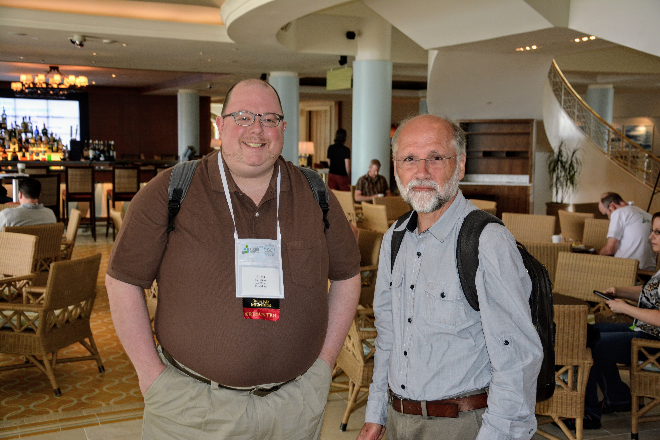
Chris Hass and Nigel Bevan at UXPA International, San Jose, 2015
Imagine my surprise to learn of Nigel’s involvement with the CIF some years later in casual conversation after a UXPA board meeting. Uncharitably, my initial reaction was a good-hearted annoyance: “YOU are the reason I had to do all that work?” As I learned more about Nigel’s involvement in establishing the CIF and by extension supporting the global recognition of UX as a valid, viable, systematic, and necessary process, I realized that without truly recognizing it, I had internalized a deep respect for CIF’s ability to foster clear and concise communication—especially for UX work where lives are on the line (health and medical work, government work, for example). In a flash I realized that my personal ability to contribute meaningfully as a UX professional—being able to “do it right”—was thanks to the amazing mentors I had along the way and, to a degree that surprised me, to CIF. As this realization hit, I felt a surge of professional respect and gratitude. As is my way, on impulse, I gave Nigel a bear hug and, as was his way, he accepted it with perplexed amusement.
Nigel and UPA / UXPA Leadership
My first direct interactions with Nigel were through volunteer work with the UXPA International (then UPA) Advisory Board. Nigel’s longstanding support of UXPA—its initiatives and its character—are noteworthy. Nigel served on the UXPA Advisory Board as a Director from 2002 to 2007. As the UXPA Director of Professional Development, he led the Usability Body of Knowledge initiative and was co-Director of Outreach. In 2012, he served as Regional Director for Europe, the Middle East, and Africa. From 2014 to his death in 2018, Nigel served as UXPA’s liaison to the ISO. I hesitate to even imagine the hours of discussion and leadership coordination involved in such a long tenure with UXPA. Moreover, it was Nigel’s unique outlook that made him singularly successful. UXPA advisory board participation involves truly remarkable amounts of consensus-building discussion, and Nigel’s frequently unyielding yet invariably gentlemanly ability to argue a point passionately and logically was welcome, if occasionally, as his colleagues report, frustrating. Nigel’s expertise and expectations for collaboration, professionalism, and occasional complete bafflement at how his colleagues saw the world, made him a tireless and passionate advocate for the betterment of the organization, the promotion and refinement of global UX standards, and helped to safeguard UXPA’s long-term intellectual legacy.
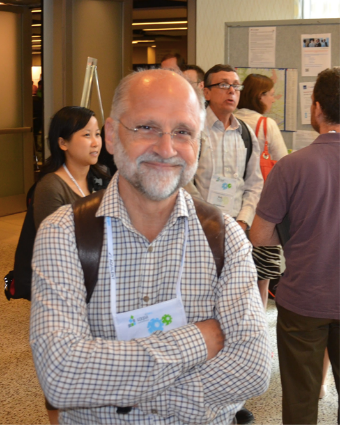
Nigel happy and surrounded by colleagues at a UXPA International conference
Working with Nigel was always interesting. He loved a vigorous debate and often found his perspective a bit orthogonal to others’. As Carol Smith, UXPA Board Member put it:
I was honored to have had deep, spirited debates with Nigel on the UXPA board and while we worked on the Usability Body of Knowledge. I cherished his wonderful hiking stories and his passion for our industry. His tireless efforts and energy were inspiring. I will greatly miss his spirit and catching up with his escapades.
Colleagues were quick to point out that, despite professional differences of opinion, Nigel was able to disagree cordially. As colleague Tom McCann said, “Nigel and I had the occasional intense Skype discussion when involved in the early days of the Body of Knowledge project but no matter the level of intensity he was always relaxed and convivial. One of nature’s gentlemen.”
The following remembrance of Nigel from Timo Jokela is similarly apropos:
As a professional, he was a great contributor, but also a kind of “stubborn” person. One of Nigel’s most important contributions in the field is the definition of usability, as stated in ISO 9241-11. . . I discussed the contents of the definition many times with Nigel, because I found the definition very good (although it has some minor inconsistencies, too). However, it became evident that my interpretation – e.g. the concept of “user’s goal” – was different what Nigel originally had intended. So, my conclusion was: the definition is better than Nigel originally intended.
In the UXPA leadership arena where volunteers come from a wide variety of cultures, backgrounds, debate styles, and professional priorities, across the board Nigel’s colleagues consistently reference his indefatigable advocacy, modesty, levity, and unique gentility. In the words of Tom Tullis, UXPA Lifetime Achievement Award recipient:
[Nigel] spoke with quiet authority. At conferences he would ask questions of speakers because he was genuinely interested not because he was trying to show to everyone how smart he was. And, of course, he was a very smart guy. But more importantly he was a very nice guy. I’ll miss him. I’ve assembled some of the photos I have of Nigel from UXPA conferences over the past several years. One of the things that you’ll see in those photos is that Nigel didn’t just attend a conference, he engaged with people at the conference.
A link to Tom’s photos is provided at the end of this article.
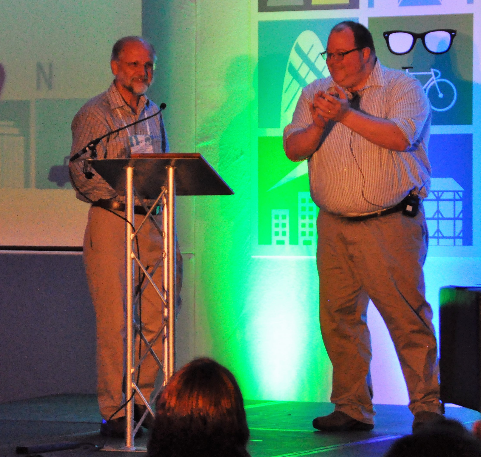
Nigel making announcements at UXPA International, London, 2014
Nigel’s son, David, nicely articulates his father’s unique combination of academic intensity and gentle persona:
[H]e was profoundly non-judgmental. He had many strong opinions and preferences of course, but he somehow seemed to never fall into the trap of blaming or judging – a wonderful and rare quality, especially in a dad! That made him a fantastic listener – someone we could talk to about anything, but it also meant he could be very direct: he saw no reason why expressing a view would be problematic because he didn’t have those hang-ups himself. When he was younger this led to the occasional moment of agonizing social faux pas, but it happened less and less as he got older. He was profoundly rational and clear-thinking, but also fascinated by people and the endless ways in which we are anything but rational.
Nigel’s professional contributions to global UX include instrumental support for starting World Usability Day. In preparation for Nigel’s memorial services, former UXPA President Elizabeth Rosenzweig created a heartfelt video describing Nigel’s involvement in the creation of this landmark global event. In summary, and in her own words, Elizabeth describes the origins of World Usability Day:
[In the fall of 2004] Nigel was in Boston for a professional meeting and [we] brainstormed a plan to start an annual day, modelled after Earth Day, in which we could raise awareness and motivate companies to create products that were more usable. That plan helped launch World Usability Day (WUD)- an event that has now been run for fourteen years in over 40 countries, with hundreds of individual events. I don’t think World Usability Day would have been possible without Nigel’s enthusiasm, support, insight and positive outlook.
Although deeply saddened to honor Nigel in this manner posthumously, UXPA International was proud to award Nigel the UXPA Lifetime Achievement Award in the summer of 2018.
Borderless Contributions
Nigel’s contributions to the UX field crossed international boundaries with singular effect. Nigel is credited with broadening the reach of usability standards and practices to Asia—specifically China and Japan. Nigel’s friend and colleague Zhengjie Liu remembers Nigel visiting China, then hosting Asian colleagues visiting the EU—introducing them to Scottish haggis. Nigel engaged his Asian contemporaries in “the EU Fifth Framework Program project he coordinated, which led to the founding of the Sino-European Usability Center in 2000. This made a great contribution to the start and dissemination of user experience practice in China.”
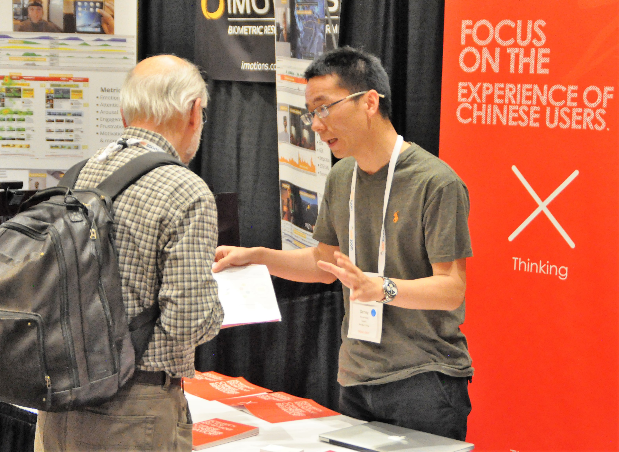
Nigel helped advance usability standards and practices in Asia
World Traveler, Hiker, …Vampire?
Inevitably when Nigel’s name or accomplishments would come up in UX conversation, there is an undercurrent of travel and adventure to the discussion. Despite this, Nigel’s travel habits took me a little while to home in on. He was singularly quiet and task focused, and in an Advisory Board context, we would talk shop first. But as I got to know him better, I noticed that he would often show up looking a little extra tired to a meeting or a bit disheveled, and I’d say “up too late?” thinking he was a little the worse for wear as we all get on these junkets (up too late, perhaps a little too much to drink the night before). Instead, as if it was the most normal thing to offer, he’d shrug and say, “noisy coyotes in the campsite.” Invited to elaborate, he’d reveal that while I was “tiring” myself out swapping stories with colleagues, at the end of a long, patient, discursive day he had driven several hours out into the wilderness, hiked a mountain, camped all night, and decamped in time to get back to the boardroom in the morning!
Alone or with friends, Nigel was an inveterate hiker and a seasoned world traveler. He once casually let on that he was a multiple million-mile traveler on British Airways. As a traveler myself, I asked him for some tips. About an hour later, I walked away, bewildered, marveling at advice like, “Always try to go through Bulgaria, you might need to hike across the border to the next airport, and pick up your flight there. It takes some hours, maybe an overnight, but you get double the miles for that leg. Maybe more if it’s raining. Or a Thursday.” Weeks later I’d think “I’m misremembering, it can’t be that complicated.” And we’d repeat this conversation again. And months later, again. To his credit, it was never clear if Nigel remembered that we had discussed this before and was merely being polite, but regardless, I never managed to get it, and he never evidenced frustration at my confusion. As far as British Airways is concerned, I have the firm belief that they should definitely retire a plane in his honor.
According to Nigel’s son David, he was a born explorer:
Dad was always an adventurer. As a young teen he cycled on his own around Germany – something he still talked proudly of as an older man – and later made his way solo through Eastern Europe. [One] time he ran out of cash and, having read in a guide book that travelers could make good money by selling blood to local hospitals, he went around asking in the local language “where can I sell blood?” It was only after a number of startled looks and a careful check of his little dictionary that he realized he had been asking to *buy* it!
Nigel would frequently hike before, during, and after UXPA conferences and other events. Stories of his adventures that nicely illustrate his high character are legion. Colleague David Siegel recounts a Nigel adventure when hiking the Japanese Alps outside of Tokyo the day before Nigel was to give a conference presentation. During the hike Nigel became lost.
By the time he got back to the cable car station, all was shut down for the night. He slept on the terrace, and, at dawn, crashed his way down the mountain through the brush under the cable car route. He reached the little town in time to catch a fast train to Tokyo and went straight to the conference. He rushed in at the last moment. He must have had twigs in his beard. If you are adventurous, stuff like this actually happens all the time, and you just deal with it, ideally with a laugh. The reason he had so many funny stories was not because he was ill fated, but because he was so adventurous.
In response to my request for photos for Nigel’s Lifetime Achievement Award presentation, many, many of respondents’ photos had common themes: Nigel, with colleagues, somewhere exotic. Workshirt, boots, and a smile.
Humble
Nigel’s son David speaks eloquently of Nigel’s character and professional accomplishments:
He was quietly proud of his work – I never heard him show off about it; in fact, I can’t imagine him showing off about anything. I think he had nothing to prove, which made him a really calm presence. When I picture dad, he is either there at his laptop with a glass of excellent red wine, or he is walking just ahead of me, quickly but never in a rush, steadily pacing on. I think that’s how he lived in general – always moving, always seeking more of life, covering thousands of miles (literally millions in fact, according to British Airways!) but enjoying the journey all the while. That’s how he was when times were good but also when times were tough, and it was and still is a profound inspiration. He was a great dad and an amazing man.
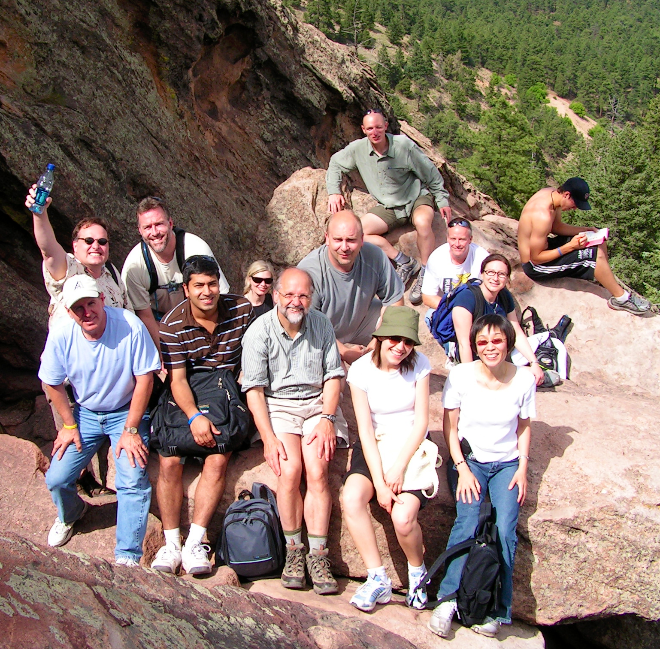
Spotted in the wild: Nigel smiling and surrounded by friends and colleagues on an excursion
As closing thoughts permit me to share from my heart: It was a pleasure to work with Nigel and to go on escapades with him, and I’m honored to have been able to enjoy his company and to learn from the examples he set. During the UXPA conference this past summer in Puerto Rico, I was reminiscing with a colleague about Nigel and we discovered that prior to the conference we had each looked into hiking a nearby mountain in Nigel’s honor. But we had individually realized that the distance between the conference and the nearest hike wasn’t very compatible with attending the conference.
And there it was.
Had he been able to attend, Nigel would have found a way to hike Puerto Rico before, during, or after the conference. Possibly all three. He may or may not have lured some UX-ers with him, but he would have made it happen. And that’s Nigel. It’s a lesson I learned from him but one that I am still working to live up to: You don’t need to be brash, or lazy, or regretful. If you love it, find a way to make it happen. If you are determined to make “usability” a lasting part of the professional world, then you hike.
And hike.
And hike.
One foot in front of the other, one meeting after another, until you make it happen. You may arrive covered in nettles, but there you are. When you engage with colleagues, attend a conference, read an article, hopefully your mental, professional, and social horizons will be a little broader. Nigel’s quiet, steadfast, quirky, amazing life shows us that there are horizons beyond horizons, contributions you can make right now, today, through perseverance, intellectual rigor, and by not forgetting that what you do can be in service of what and who you love. Especially when it’s not easy. I find it heartening to remember that our field is evolving before us, with the people around us, on the trails blazed by those who left us along the way. As you leave whatever room you’re in right now, take a moment to look at the horizon and take the initial steps that will lead you to it. Nigel led a singular life, and so do you. In his memory, let’s make the most of it.

May Nigel’s memory
inspire us to expand our professional and personal horizons
Memorial Presentations
Please view the following presentations to better understand and appreciate the life of Nigel Bevan.
- UXPA International Lifetime Achievement Award Memorial Presentation: https://www.slideshare.net/UXPA/inside-the-ux-studio-lifetime-achievement-award-for-nigel-bevan-phd
- Family photos: https://www.forevermissed.com/nigelbevan/#abouthttps://www.dropbox.com/sh/l96dmg0fn83k237/AABx98GZPl9ppKsUaxjdYjhda?dl=0
- Family tribute: https://youtu.be/a5Z53lW7x-0
- Video from Elizabeth Rosenzweig: https://www.youtube.com/watch?v=gcVx1Iwmbng
- Photos from Carl Myhill: https://www.flickr.com/photos/carlmyhill/sets/72157693297483211/with/26252058997
- Photos from Tom Tullis: https://www.flickr.com/photos/tomtullis/albums/72157667292612918
